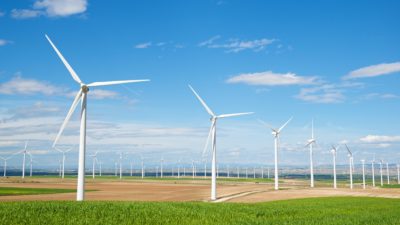2020 has been a tough year for oil & gas companies. As travel restrictions kept most vehicles off the road and planes out of the sky, the demand, and subsequently the price, of oil plummeted to its lowest point in decades. Taking the BP share price with it.
But recently, the oil giant’s stock has been on the rise — increasing by 60% over the past six months. What’s causing this impressive growth? And should I consider adding BP to my portfolio? Let’s take a look.
Oil prices are rising
Travel restrictions worldwide have begun to ease as the vaccine rollout continues. In addition, both China and the US have started rebooting their economies. So it’s not surprising that demand for oil is on the rise again.
What’s more, the leading global oil producers, namely Russia and Saudi Arabia, have agreed not to increase production, thereby limiting supply.
Combining rising demand with restricted supply has enabled oil prices to exceed pre-pandemic levels. And yet, the BP share price is still trading roughly 30% lower than at the start of 2020.
Is this a buying opportunity for my portfolio? Perhaps. But there are some risks to consider — specifically, those revolving around its plans to transform the entire business.
BP is moving to green energy
In August 2020, the company revealed its new strategy to reduce its carbon emissions to zero. BP is set to invest aggressively in renewable energy technology over the next 10 years. Using solar, wind, bioenergy, and hydrogen energy solutions, the firm intends to increase its green energy production by 2,000% to 50GW.
Simultaneously, it will wind down its oil & gas production, selling off existing assets to fund the transition. Based on the timeline BP has published, its oil & gas portfolio will be 40% smaller by 2030. That’s roughly the equivalent of cutting the production of one million barrels of oil per day.

BP’s transformation adds volatility to the share price
BP is one of the largest oil & gas producers today. And so, transforming a business of this scale is not going to be a pain-free process.
As electric vehicles become more widely available and affordable over the next decade, oil prices may once again begin to wither. 2020 has already given a good preview of what could happen once petrol and diesel cars are phased out.
This is particularly troublesome for BP as its future strategy depends on selling its oil & gas assets that may not retain their current value. Suppose fossil fuel prices fall faster than the business can evolve. In that case, it may have to raise additional capital through other channels, such as taking on debt.
Another potential issue is renewable energy technology itself. It may not be capable of providing the same level of profitability that the firm has been able to deliver to date. Combined, these risks may jeopardise the stock’s historical 5% dividend yield, and with it, the BP share price.
It seems to me that BP has quite a few challenges to overcome in the years ahead. And so, for now, I won’t be adding the stock to my portfolio. Once more data becomes available about how it’s progressing in its transformation, I’ll take another look.







